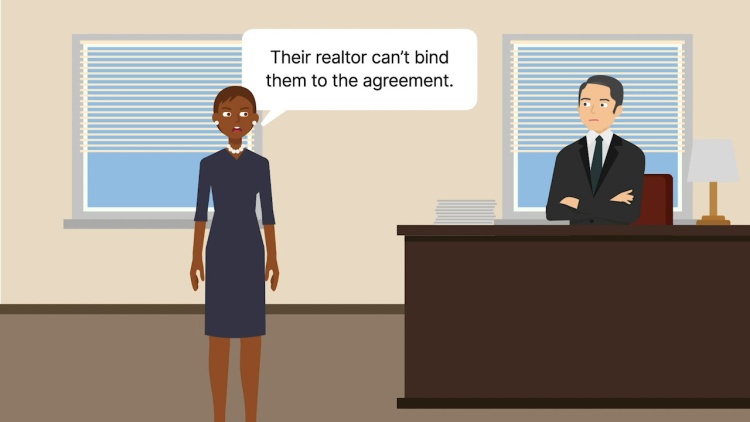Gresser v. Hotzler
Minnesota Court of Appeals
604 N.W.2d 379 (2000)
- Written by Joseph Bowman, JD
Facts
Calvin and Cheryl Hotzler (the Hotzlers) (defendants) owned commercial property, which they listed for sale. Michael Gresser (Gresser) (plaintiff) was a real estate investor, who was interested in purchasing the property. Gresser and the Hotzlers negotiated the purchase terms over the course of several months and arrived at a proposed purchase agreement. The Hotzlers signed the agreement, initialing all changes, and delivered the agreement to Gresser. Gresser changed the closing date and the survey date on advice of counsel because the dates became impractical due to protracted negotiations. The Hotzlers’ real estate agent told Gresser that the changes would not hinder the deal. The Hotzlers had not suggested that the real estate agent had the authority to contract on their behalf. Gresser delivered the agreement to the Hotzlers, and they did not sign it. However, Calvin Hotzler did show Gresser the property and introduce him as the new owner. The Hotzlers then received another offer, which they accepted. Gresser sued the Hotzlers for specific performance and breach of contract, and the Hotzlers moved for partial summary judgment. The trial court determined that the Hotzlers had not accepted the contract, and dismissed Gresser’s claims. Gresser appealed.
Rule of Law
Issue
Holding and Reasoning (Lansing, J.)
What to do next…
Here's why 907,000 law students have relied on our case briefs:
- Written by law professors and practitioners, not other law students. 47,100 briefs, keyed to 996 casebooks. Top-notch customer support.
- The right amount of information, includes the facts, issues, rule of law, holding and reasoning, and any concurrences and dissents.
- Access in your classes, works on your mobile and tablet. Massive library of related video lessons and high quality multiple-choice questions.
- Easy to use, uniform format for every case brief. Written in plain English, not in legalese. Our briefs summarize and simplify; they don’t just repeat the court’s language.





